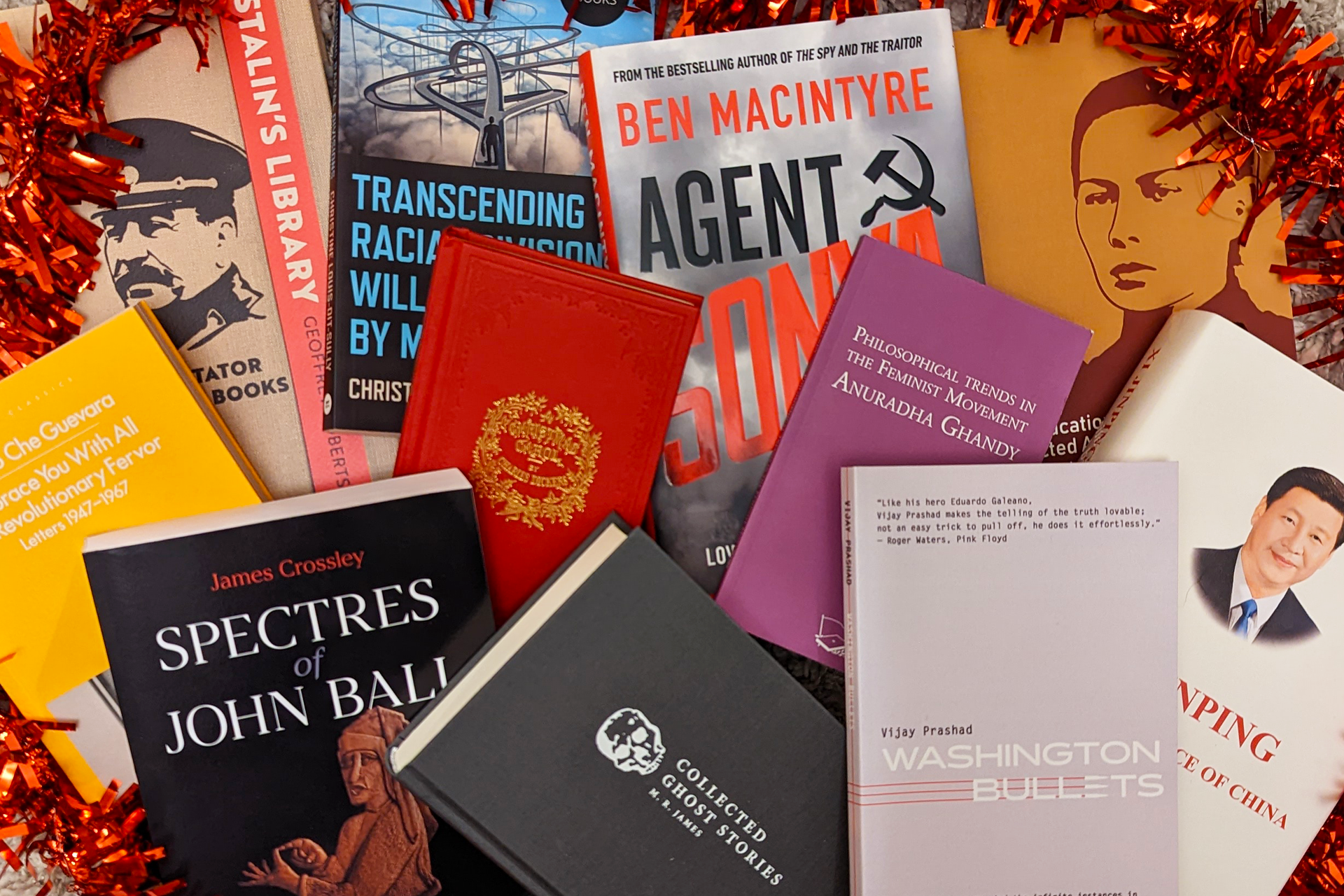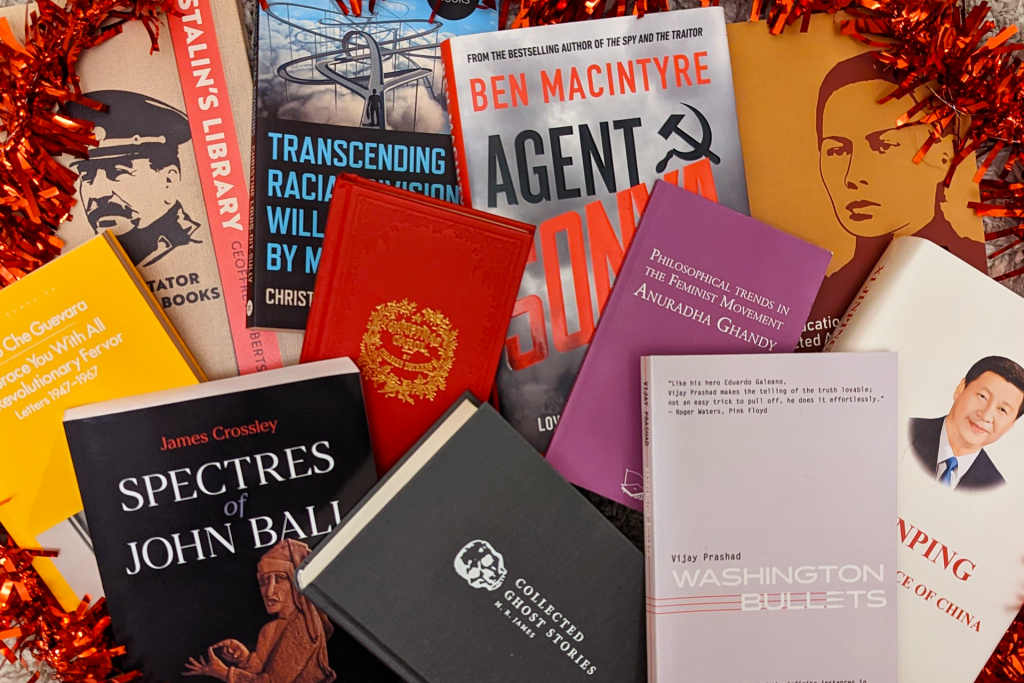10. A Christmas Carol, Charles Dickens
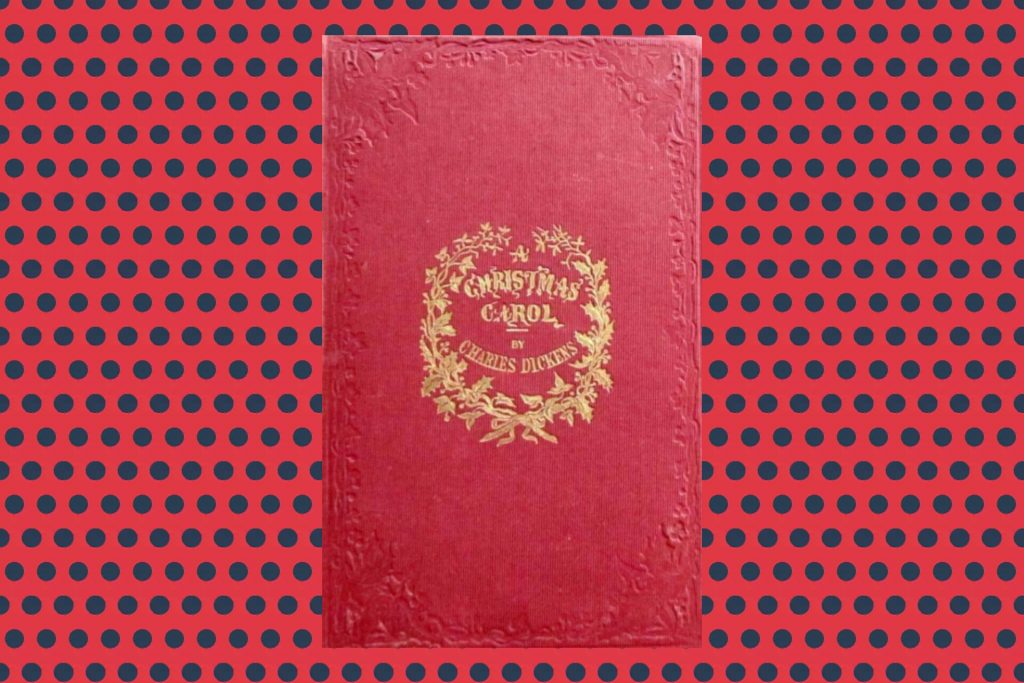
Alright, the last sentence was somewhat a lie as you most definitely have heard of this one. But have you actually read it, or have you just watched the fantastic Muppet’s version of it? The story is essentially about a bunch of ghosts absolutely hounding a money lender until he begs for redemption and a second chance, what’s not to love.
Most importantly though is its portrayal of Victorian London, being published and set in 1843 of which Charles Dickens inhabited, as did Karl Marx. The both of them walked the same streets for 20 years and were appalled by the developing industrial society which they saw around them, and with both men referring to each other in their writings. In fact the Manifesto of the Communist Party & A Christmas Carol were both published within 5 years of each other!
The novella is also part of the ghost story for Christmas tradition, which I’ll talk about a bit later. So go grab a copy. I recommend the hardback Arcturus Ornate edition which beautifully replicates the original first edition publication. Books are best when beautiful after all.
9. I Embrace You With All My Revolutionary Fervor, Che Guevara
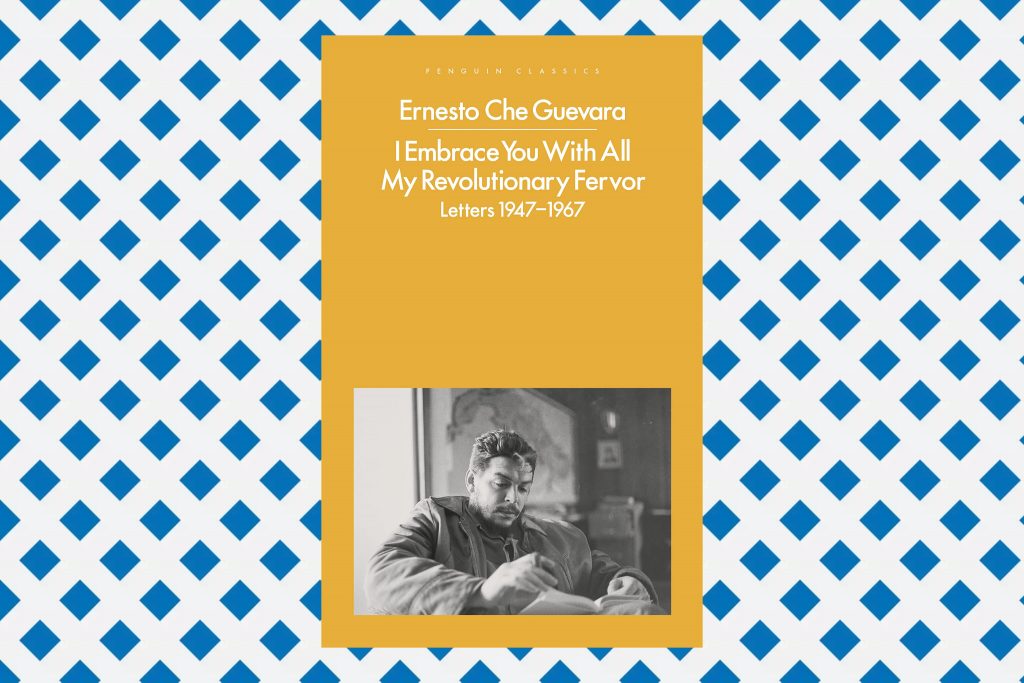
Books about Che Guevara are in abundance, and works written by him usually take the form of his diaries, but instead this recent publication is a new collection of his letters from 1947-1967. From them, in his own words, can we learn about who Guevara was in those 20 years. Spanning his revolutionary journey from its very inception, across his time fighting in the Cuban revolution, to after its success as a leader in its government, right up until his further attempts at revolution in the Congo and in Bolivia, where he finally met his end.
Through these raw and unfiltered words we can glimpse and begin to understand how a person can develop their outlook of the world, while also balancing the pressures of leadership alongside their personal relationships with family and loved ones. The humanisation and un-doctored reality of a guerilla fighter who succeeded by using Marxist-Leninist ideology coupled with violent armed struggle, is an interesting result of the romanticisation of Che. Capitalism’s need to commodify and profit from his name and image has ended up elevating his legacy and writings as high as they can be, where they can inspire and educate many revolutionaries both since and yet to come. In fact I remember having a Che Guevara poster on my wall when I was very young (thanks Woolworths), before eventually buying a graphic novel of his life from Waterstones, purely because I wanted to know who on earth he actually was. Now I’m here.
Available here & in audio!
8. Philosophical Trends in the Feminist Movement, Anuradha Ghandy
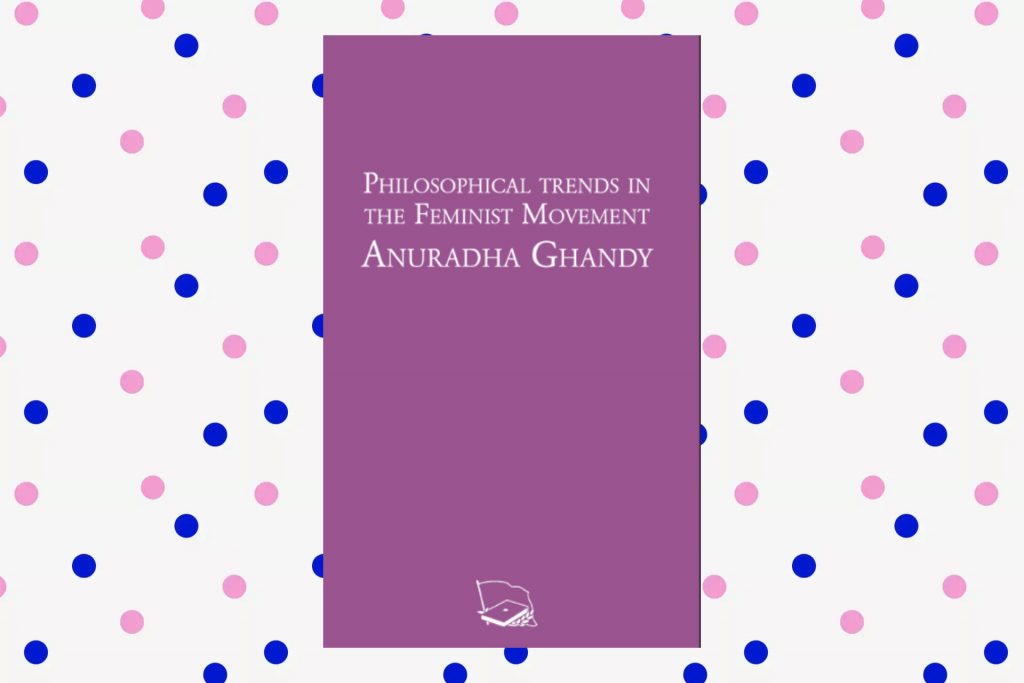
The only book on this list that you can both listen to and get the PDF of completely free, so there’s absolutely no excuse for you not to read it. Produced after her death from the notes, writings and essays of Anuradha Ghandy, a founding member of the Communist Party of India (Marxist–Leninist), this book is an exploration and guided tour of the feminist movement throughout history. It looks at and discusses the different types and branches of feminism, taken in their historical context, to see how they emerged and grew rather than as spontaneous phenomena. With each one Ghandy explains clearly with intimate knowledge and without bias, before looking at their advantages and their drawbacks, and demonstrating how they ended up evolving through time alongside the class struggle.
This is a great education on the different strands of feminism, especially as it is so often portrayed as one homogenous philosophy and attempted to be disregarded through its many contradictions. Instead it’s laid bare as a family tree, ending up as an explanation of why Ghandy is a Marxist-Leninist, with an added take down of postmodernism. What’s not to love?
Available here & in audio!
7. The Governance of China IV, Xi Jinping
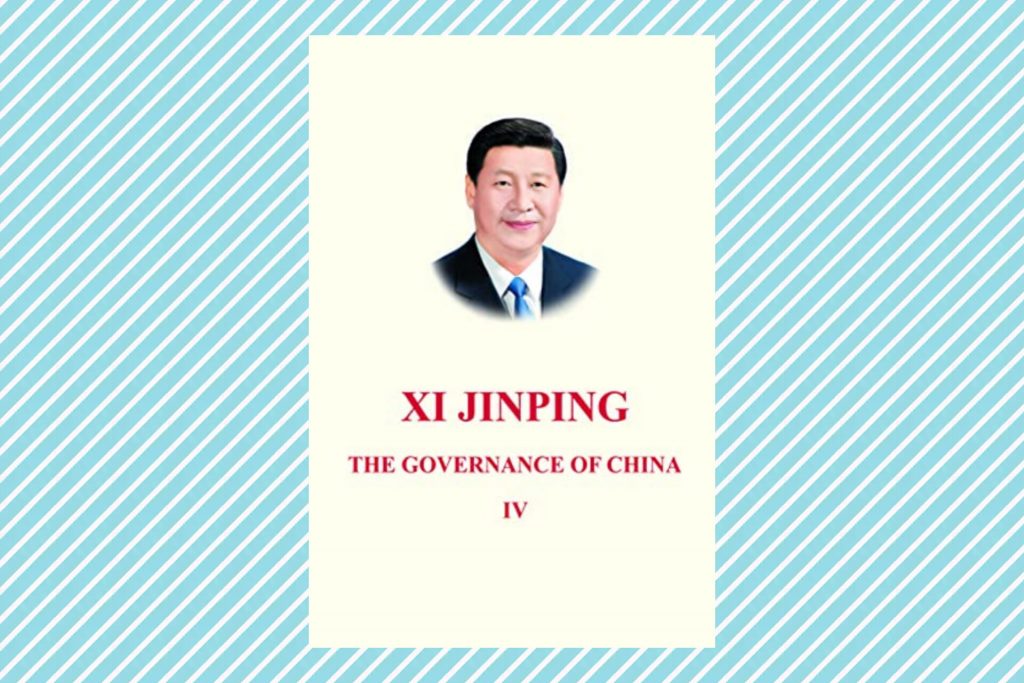
The latest installment of the spoken and written works of Xi Jinping; General Secretary of the Communist Party of China, and President of the People’s Republic of China. Published in July this year, it spans from February 3, 2020 to May 10, 2022, grouping the articles under themed headers for ease of reading. From ‘Epidemic Response and Socio-Economic Development’, which covers the Covid-19 Global Pandemic, to ‘Harmony Between Humanity and Nature’, which sees its work on Green Development and the transformation of Carbon Emissions. Whether you’re fundamentally a supporter of China or not, this collection of works will help to reliably inform you of their revolutionary thought and actions way ahead of what the Western media portrayal would have you believe.
Studying and understanding the positions of the largest and most successful developing socialist countries in the world today is an essential task, one which some capitalists are definitely not afraid of doing in an attempt to more effectively undermine and attack it, so you better get reading.
6. On Education, N.K.Krupskaya
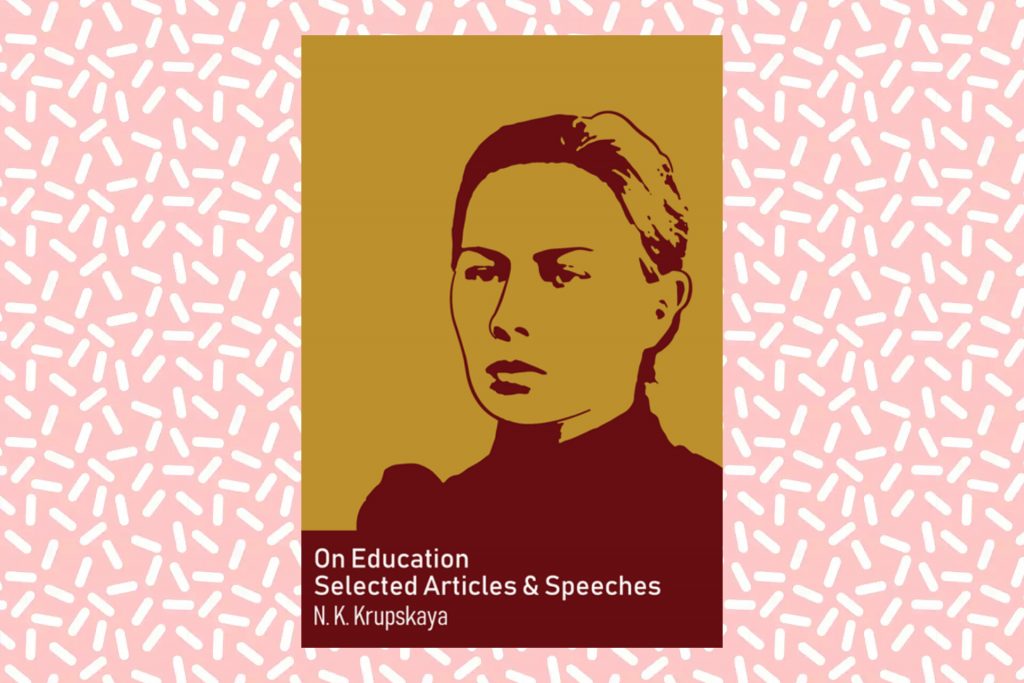
The second book in this list published by the new Foreign Languages Press, an organisation which prides itself on producing expertly translated and cleanly formatted texts by classic Marxist-Leninist, and some Maoist, writers. It provides them both as free PDF downloads, as well as affordable physical editions, and even some as free audiobooks. Many of their works are difficult to come by prior to their publishing, and this is the case of Krupskaya’s On Education, which is a selection of her various articles and speeches compiled neatly together. Not only is it very helpful to have easy access to these works, but for the case of female Marxist-Leninist writers it’s a long overdue recognition of their contributions and participation in revolutions around the world.
A symptom of the times they were written in, where although the participation of women in organising was starting to increase, they were rarely given opportunities to write about it in any long-form or meaningful way. Often sidelined to only writing articles in newspapers and magazines, On Education is a compilation of Krupskaya’s interest and exploration on the subject of learning and how to restructure it within the world’s first developing socialist state. I hope to see many other female Marxist-Leninists, and even early Marxists (such as Eleanor Marx), given the same elevation and appreciation for their contributions to the struggle, so that we together can continue in their work.
5. Spectres of John Ball, James Crossley
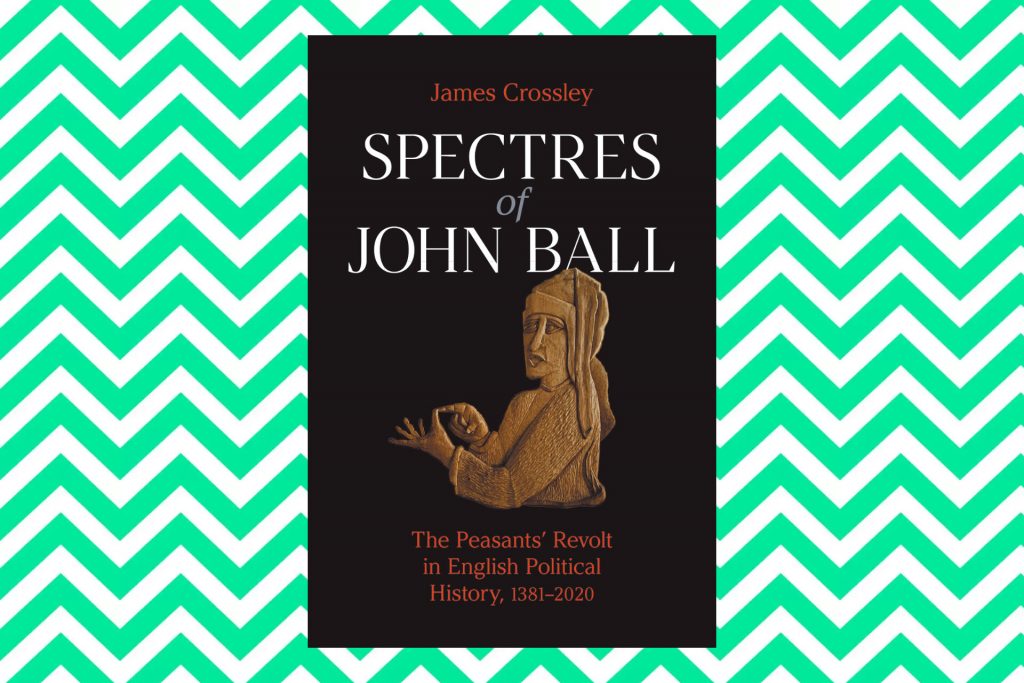
Published earlier this year, Spectres is a deep dive on the history and legacy of the revolutionary priest, John Ball. Ball essentially challenged the ideas of equality, questioning why the class disparity between Lords and Peasants existed if we were in fact all created from God’s own image. While this book does look at the evidence of the historic role which the Priest played and his influence in the Peasants’ Revolt of 1381, that is just the tip of the iceberg as it were. What makes up the body of the book is the exploration of what has come afterwards, with the different takes to both discredit Ball and to propagate him throughout the ages in a variety of different portrayals, used to serve an abundance of political narratives.
This book is the perfect read for those fascinated by history, but also those who want to better understand the English radical tradition, and how legends have spread and been used within political struggle and culture over the past few hundred years. It goes to show that not all academic writers are actually dead inside, only most of them.
4. Agent Sonya, Ben Macintyre
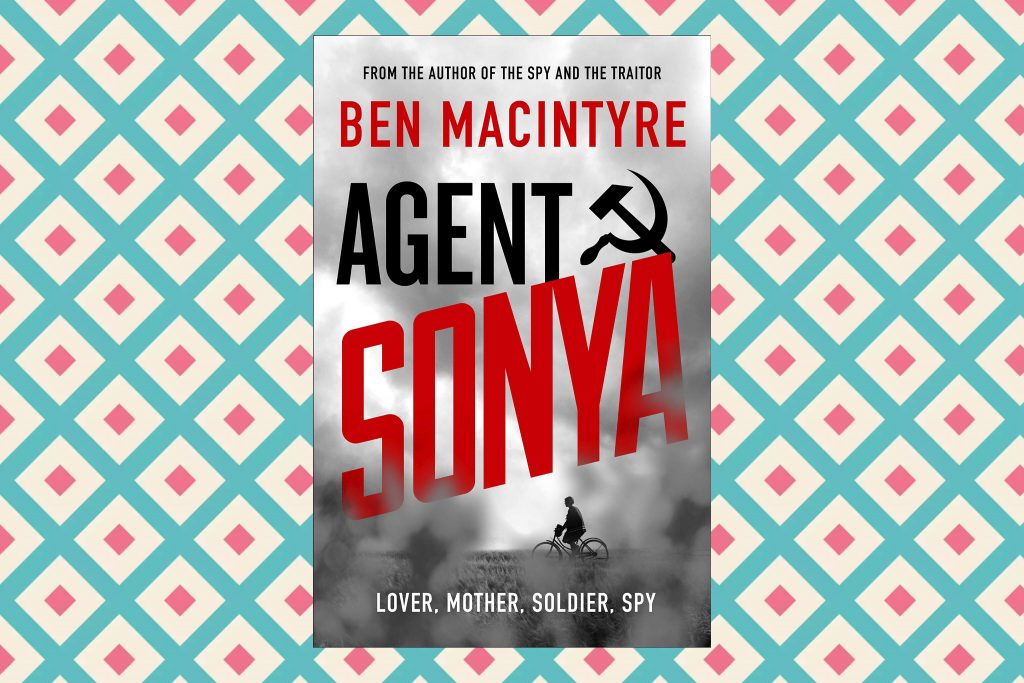
Now this book is fascinating. Not only does it read like a thrilling espionage novel, traversing great feats of action around the world, but it’s also completely true, bar the writer’s occasional bias against the Soviet Union in places. Agent Sonya reveals the epic story of Ursula Kuczynski, a German Jew & Colonel in the Red Army who dedicated her life to Communism and acted as a Soviet agent during the 1930s and 1940s across Germany, Japan, and Britain. She took part in numerous covert operations, planned an assassination attempt on Hitler, and even stole nuclear secrets for the Soviet Union while pretending to be a British Housewife.
It’s a really fun and interesting read, and although Macintyre’s framing of the events sometimes tarnish the facts (an example being the typical Western portrayal of the Molotov–Ribbentrop Pact and his painting of it as a betrayal), the elevation of an exceptional individual like Ursula is a great way to humanise and demonstrate the revolutionary dedication of Marxism-Leninism.
Available here & in audio!
3. Transcending Racial Divisions: Will You Stand By Me?, Christine Louis-Dit-Sully
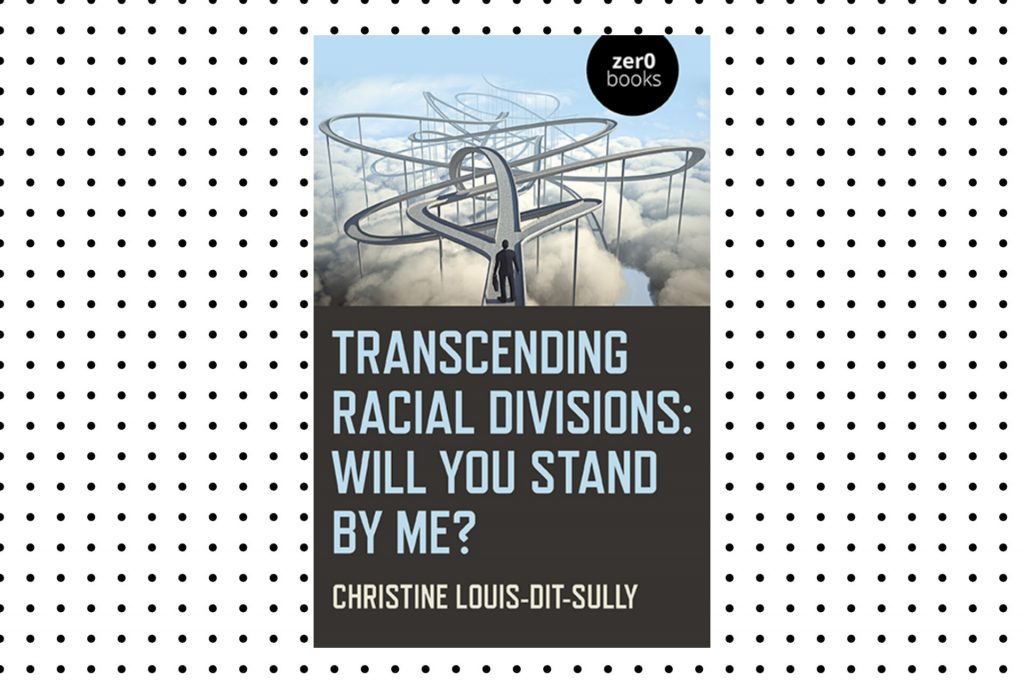
I tend to find that publications by zer0 books are either very much a miss, or very much a hit. Thankfully this first book by Louis-Dit-Sully is one of the latter. It’s always nice when a book appears to come out of nowhere and be the exact articulation and investigation of ideas which you are in need of, and Transcending Racial Divisions is just that. It’s a refreshing look at racial divides which have come to dominate the political sphere over the last few years, challenging the growth of identity politics and its use to define and obscure the struggles against racism, and how it has been used to reinforce the status quo in favour of a capitalist society.
Having a clear historical and material analysis of racial thinking is very refreshing and very much needed to bypass the minefield of radical liberal & postmodern politics, and to participate meaningfully in the overthrow of class society, rather than as a puppet for it. I very much look forward to what she decides to write next.
2. Stalin’s Library, Geoffrey Roberts
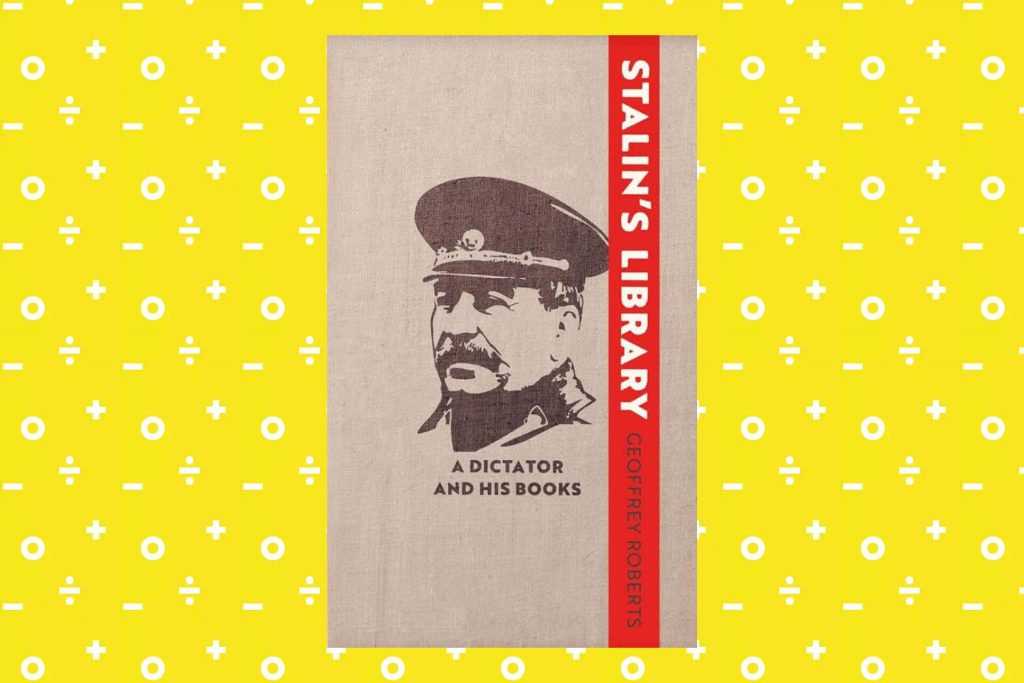
A very interesting book from veteran Stalin author Geoffrey Roberts. I find it fascinating how such expertly written and researched histories and biographies by Roberts both satisfy the anti-communist mainstream press who continue to give his books large promotion through its publication and positive reviews in all major newspapers, while also reinforcing the incredible achievements, abilities, and legacy of the Soviet leader. In other words, he gets away with demonstrating how brilliant he was as long as he refers to him as a dictator every now and then. Which is absolutely hilarious.
This book especially is a complete submersion into the educational capacity of Joseph Stalin, in his ability to read great mountains of material from numerous subjects in which to inform his decisions and understanding of the world. It shows his seemingly effortless ability to praise his opponents when they were in the right, and mercilessly critique his allies when they were in the wrong. It blows away any suggestion of a cult of personality around him, when he wouldn’t even let the publication of biographies on him or any promotion of himself as an individual pass censorship, and only ever conceded when there was a very good reason to do so. Whether you love him or hate him, Stalin’s Library is a book that might just challenge your understanding and reasons for doing so for the better.
Available here & in audio!
1. Washington Bullets: A History of the Cia, Coups, and Assassinations, Vijay Prashad
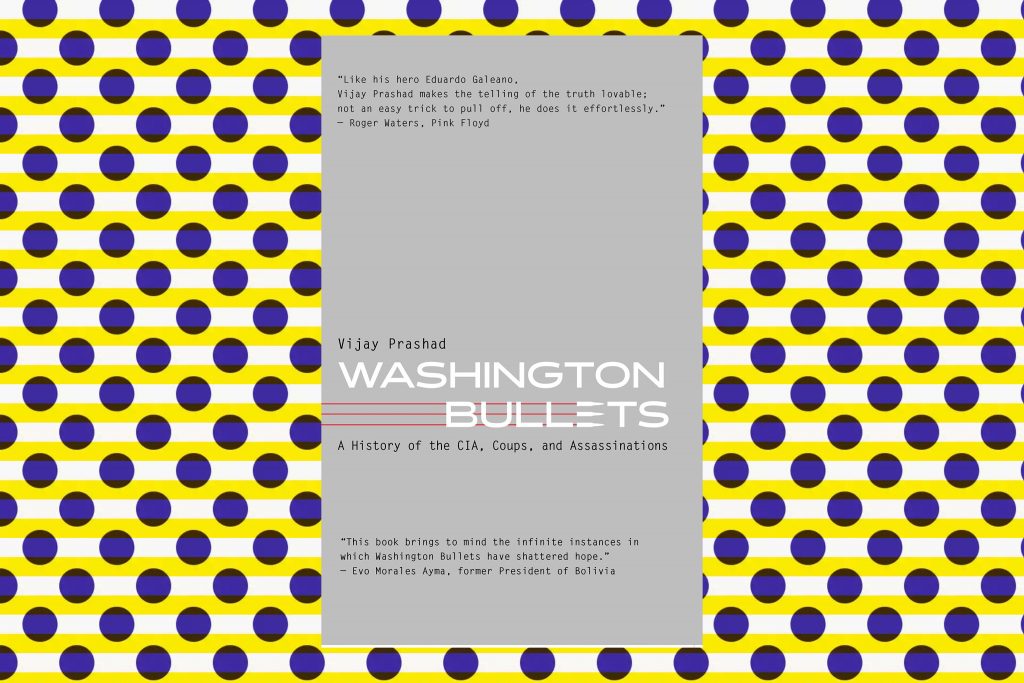
Potentially my favourite book of the year is Washington Bullets, which is essentially a breakdown and dissection of the CIA’s involvement in putting down revolutionary movements, its tactics to take down governments, its assassination of communists, and its overall brutality as butchers of the people. It may not sound like a fun read, but rather than turning to despair and helplessness, it instead uses these historical tales as a teaching point. It was Sun Tzu who said: “If you know the enemy and know yourself, you need not fear the result of a hundred battles. If you know yourself but not the enemy, for every victory gained you will also suffer a defeat. If you know neither the enemy nor yourself, you will succumb in every battle.”.
This book is very much about knowing your enemy, and acts as a spotlight on the playbook of U.S. Imperialism, while also showing the heroes and martyrs who have stood against it. Prashad has written this beautiful book as an attempt at armour to prevent more of the same devastation being wrought against revolutionary movements, and only time will tell how successful it has been.
Available here & in audio!
BONUS: Collected Ghost Stories, M.R.James
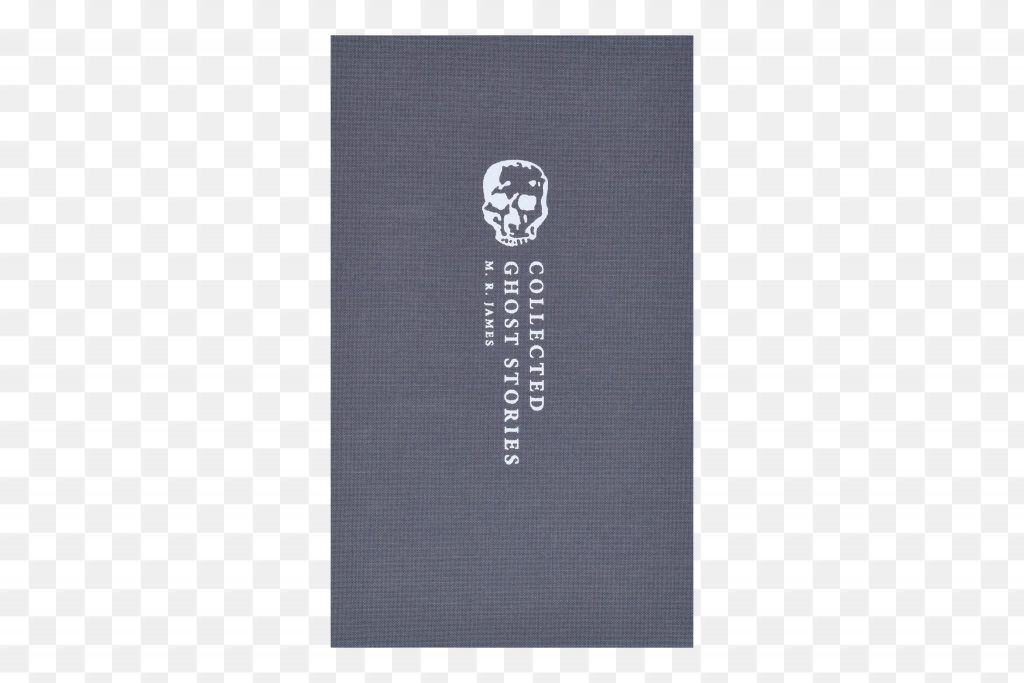
An added bonus to round off this list of book recommendations for Christmas is a complete self indulgence for me, which I hope you will allow. In my view, being a Marxist-Leninist is not just about fighting to create a new and better world for all of humankind, but also one which is rooted in deep tradition and respect for the countries and communities we live in. So as someone who was born in Cambridge and grew up in Bury St Edmunds, the author M.R.James has appropriately been a ghost that has followed me around throughout the years in references of his works and his history in the area. He is best known for his Ghost Stories, many of which were turned into short BBC episodes in the 1970s as a revival of the long tradition of telling ghost stories around Christmas time.
‘A Christmas Carol’ by Charles Dickens, as mentioned earlier, being part of this tradition which stretches back many centuries, with origins linked to the Pagan festival of Yuletide and around the Winter Solstice, where it is believed that the darkest of days gave us closer connection between the dead and the living. While many of the Christmas traditions have origins from Pagan times, it’s interesting that the development of the Industrial Revolution nearly put an end to celebrating it. With more working hours, and fewer days off, Christmas became just another work day to most. It wasn’t until a rejuvenation in Victorian times that the ideas of family, charity, goodwill, peace and happiness were associated with the Christmas tradition, and its strength as a holiday was renewed.
Although modern commercialisation of Christmas puts the focus on overindulgence and purchasing, the value of spending time with our families and friends continues to endure. But rather than spending our limited time off work together (those who have it anyway) spending money, staring at our phones, or watching television; maybe a return to some tradition would do us some good with a ghost story or two. As Dickens said: “the ghosts of Christmas are really the past, present and future, swirling around us in the dead of the year. They’re a reminder that we’re all haunted, all the time, by good ghosts and bad, and that they all have something to tell us”.
So together let’s listen, let’s learn, and let’s hope for a better future. Then in the new year, let’s make it a lasting reality.
Joe Weaver, is the AgitProp Officer of the YCL

